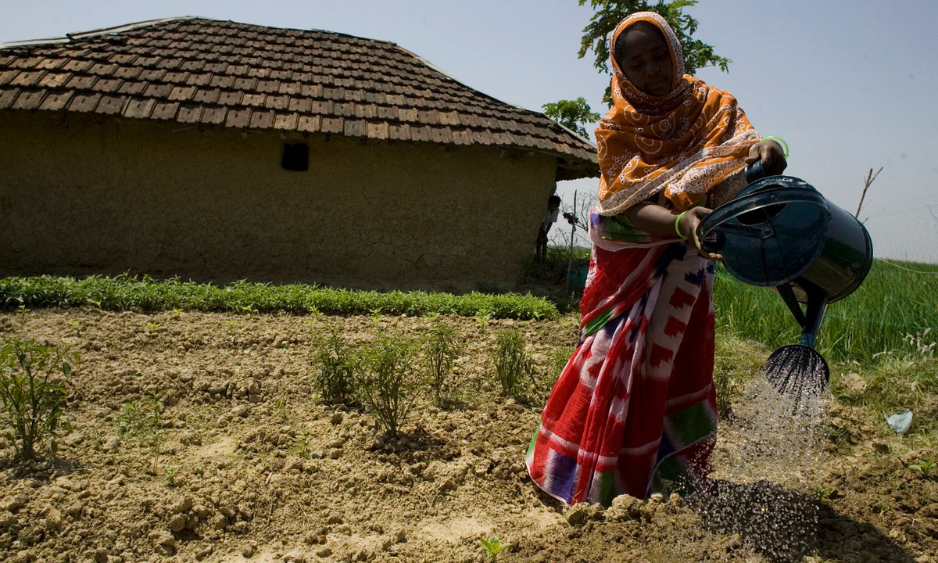SEED FUNDING JOINT PROGRAMMES
Cambodia
Transforming Cambodia’s food systems to become more sustainable, inclusive, and resilient


PROJECT TITLE | Transforming Cambodia’s food systems to become more sustainable, inclusive, and resilient |
| Context | Cambodia’s National Pathway is the outcome of an extensive consultation process, involving more than 2,000 people throughout thirty dialogues, which identifies four priority areas, namely healthy diets for all, empowerment of youth, women and vulnerable groups, resilient livelihoods and food systems, inclusive governance. Acknowledging the risks posed by climate change to hard won development gains and as a co-founder of the Alliance of Champions for Food Systems Transformation, Cambodia is prioritizing the integration of climate change and food systems transformation, building coherence across the agendas. The Council for Agricultural and Rural Development, the government agency coordinating food security and nutrition initiatives in Cambodia, is leading collaborative efforts to translate national aspirations into concrete action. |
| PUNOs | FAO, WFP, UNICEF |
| Contribution to SDGs | SDG 2 Zero Hunger |
| Contribution to other SDG transitions | Climate, biodiversity, pollution |
| Duration | August 2024 – July 2025 |
| Expected financial leverage | $3 million |
| Alignment with SG Call to Action | Policy integration; Food systems governance; Inclusive and participatory design; Private sector engagement |
| Outcomes | The Joint Programme fosters an enabling environment for food systems transformation by enhancing national capacities and policy frameworks, identifying opportunities to unlock financial streams, and strengthening advocacy efforts for food systems transformation. The JP provides crucial support to the alignment of the climate and food agendas, accelerating progress towards resilient, sustainable and inclusive food systems. |
| Partners | Council for Agricultural and Rural Development (CARD) will be the main government counterpart and will coordinate the government activities in conjunction with other key Ministries, including:
|
| Outputs |
|
National Convenors propel joint implementation of the food systems transformation and climate action agendas
National Convenors explore the crucial intersection of food systems transformation and climate action, providing valuable input for the development of a new Convergence Initiative.

©FAO/Giulio Napolitano
Between November 14-16, 2023, the UN Food Systems Coordination Hub, in collaboration with the 4SD Foundation, organized five regional touchpoints to introduce the Food Systems and Climate Action Convergence Initiative to National Convenors. With over 200 participants, the event provided a platform for Convenors to share insights and collaborate on shaping this groundbreaking initiative.
Introducing the Convergence Initiative
The Convergence Initiative stems from the recognition, highlighted in the UN Secretary-General's Report of the Food Systems Summit Stocktaking Moment (UNFSS+2), that current food systems contribute significantly to pollution and greenhouse gas emissions. The Secretary-General’s Call to Action for Accelerated Food Systems Transformation urges leaders to incorporate food systems strategies into national policies, aligning them with climate action and nature preservation goals.
Elevating the importance of food systems, the United Arab Emirates COP28 Presidency launched the Food Systems and Agriculture Agenda during the UNFSS+2 in Rome. This agenda prioritizes aligning national food systems pathways with climate-related targets by 2025, including Nationally Determined Contributions (NDCs) and National Adaptation Plans (NAPs). It aims to secure commitments from governments and all stakeholders, solidifying the transformation of food systems as a central item on the global climate agenda.
The initiative's objectives
As part of these broader efforts, the Convergence Initiative is designed to assist countries in maximizing synergies between food systems transformation and climate action, aligning with COP30 and UN Food Systems Summit +4 Stocktaking Moment in 2025. It aims to catalyze advancements toward climate-smart, people-centric, and nature-positive food systems, promoting a fair, inclusive, and sustainable future aligned with the 2030 Agenda for Sustainable Development. The initiative will actively promote a national convergence process, offering support through periodic technical assistance, orientation sessions, facilitation of resources, including the use of convergence dialogues, and ongoing guidance, fostering cross-sectoral collaboration and stakeholder engagement on the journey towards COP30.
Input from National Convenors
During the touchpoints, National Convenors and their teams were prompted to consider key questions to support the development of this Convergence Initiative. The questions aimed to encourage reflection on existing mechanisms for integrating food systems transformation and climate action agendas, the extent of integration in national policies, and the anticipated opportunities and challenges in converging these agendas.
The insights gathered from the National Convenors during the touchpoints emphasized the importance of aligning food systems transformation with climate action to achieve the Sustainable Development Goals (SDGs). They outlined ongoing efforts to link these agendas and welcomed the Convergence Initiative for its potential to contribute significantly at both national and regional levels while adapting to the diverse contexts of each country. Participants also recognized its ability to foster cooperation and synergy among diverse stakeholders operating at various scales.
The path forward
The regional touchpoints marked a significant step in fostering international collaboration to address the complex interplay between food systems and climate action. The Convergence Initiative, with its strategic objectives and support mechanisms, holds promise in steering countries towards more sustainable and resilient futures. As the initiative gains momentum, the global community looks forward to witnessing transformative changes in food systems and climate action on the path to achieving shared environmental and developmental goals.
- The UN Food Systems Coordination Hub at COP28
- Food Systems Solutions Dialogues with National Convenors
